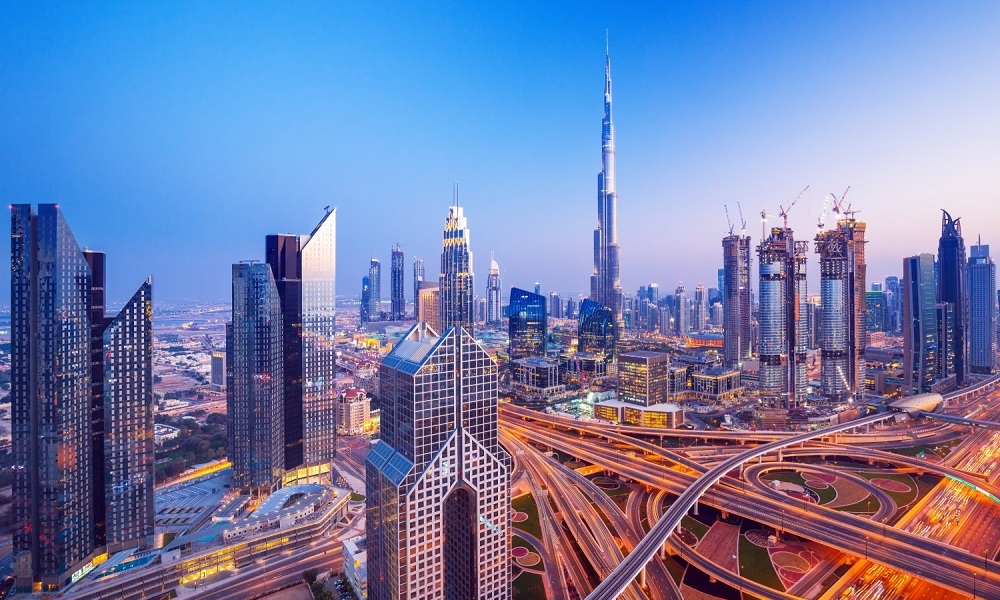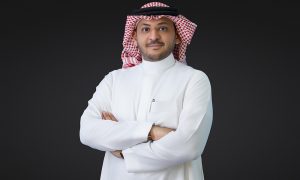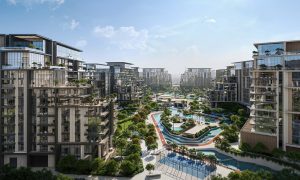Let’s get smarter about infrastructure
Angitha Pradeep looks at Dubai’s 2019 Public Budget law and how economic and structural reforms will protect infrastructure growth

The Ruler of Dubai, His Highness Sheikh Mohammed bin Rashid Al Maktoum, Vice President and Prime Minister of the UAE, has signed the 2019 Public Budget Law for a total expenditure of $15.46bn, slightly higher than last year’s $15.41bn, itself a 19.5% jump from 2017.
The 2018 budget also had a 47% rise in infrastructure spending, to $3.24bn, as the UAE made preparations to host Expo 2020. 2019 infrastructure spending falls to $2.50bn, which can be credited to certain Expo projects being completed, but it is driven by the same objectives as the 2018 budget.
According to a 2018 PricewaterhouseCoopers (PwC) report titled ‘Growth Markets Insights’, fluctuating oil prices and a decrease in investment from India and China have slowed down growth in the UAE.
Despite strained market conditions, the Dubai Chamber of Commerce and Industry is forecasting single-digit GDP growth for the UAE between 2019 and 2023, with the construction sector at the forefront of economic expansion. According to the government’s macroeconomic model, expansionary fiscal policy and a growing number of infrastructure and construction investments in the run-up to Expo 2020 Dubai are expected to keep the country’s GDP on the rise.
“Even with the slight rebound in oil prices, there is still significant pressure on government budgets and the drop [in infrastructure spending] is not totally unexpected by the industry,” says Dominic Holt, partner at PwC. He believes this drop does not represent a slowdown in infrastructure projects or diversification of spending to other sectors, but rather is reflective of the projected use of different funding methods and spending profiles for infrastructure projects.
“There has been a public-private partnership (PPP) law in Dubai since 2015, but not many projects have been procured under this approach,” explains Holt. “However, the focus on using private finance to deliver infrastructure projects is becoming a top priority for the Dubai government, and there is movement in this space with the announcement of specific PPP projects by the Dubai Health Authority, Roads and Transport Authority and Dubai Municipality.”
He adds that while the use of PPP is intended to spread costs and reduce upfront capital spending by government departments, it also brings other benefits like increased foreign direct investment and growth of the local supply chain, which in term creates jobs as well as fast-tracking innovation and diversification of the economy.
Holt points out that the sector continues to face challenges and pressure to perform and deliver “more for less”.
PwC’s ‘Capital Projects and Infrastructure Survey Report’ claims that since 2016, there has been a slowdown in the commissioning of construction projects, and the financial stress among major contractors highlights a pressing need for reform and change across the industry.
The report also says there needs to be much more effective collaboration between customers and contractors, recognising that contract awards based on “lowest cost wins” very often fail to secure the best whole-of-life outcome in value terms. Lowest cost decisions give key players in the construction supply chain little capacity or incentive to invest in initiatives that deliver better quality and value over time.
“Without continuous change and improvement to the way projects are procured, financed and delivered, it will be increasingly difficult for clients and the supply chain to extract value from these contracts in a sustainable manner. Stress on contract prices, working capital and cash flow have hurt many regional and international players who operate in the Middle East. It is clear that the industry needs to evolve,” Holt asserts.
The industry is taking steps in the right direction with an increased focus on collaboration and innovation. In Dubai, where BIM (building information modelling) is mandated on government projects, a platform is being created for collaboration and efficient working from the inception of a project through operation and maintenance.
However, Holt believes there will be a dual effect of emerging and future technologies on infrastructure development.
“In the delivery of infrastructure itself, the industry needs to become smart and adopt artificial intelligence (AI) and other such technologies to assist with the cost pressure as outlined,” he says. “But there can be further developments through the use of drones for site monitoring and progress management, and then ultimately bring all these aspects together using blockchain technologies to provide for a fully integrated smart approach to infrastructure delivery.”
There should also be a rethinking of how infrastructure is built. Effects of emerging and future technologies on urban planning, public transport, power distribution, etc will make the industry stronger and demand-driven. Holt concludes, “Infrastructure itself will not revolutionise the economy, but the right infrastructure, well planned and efficiently delivered, maintained and operated, is the enabler for economic development.”

























